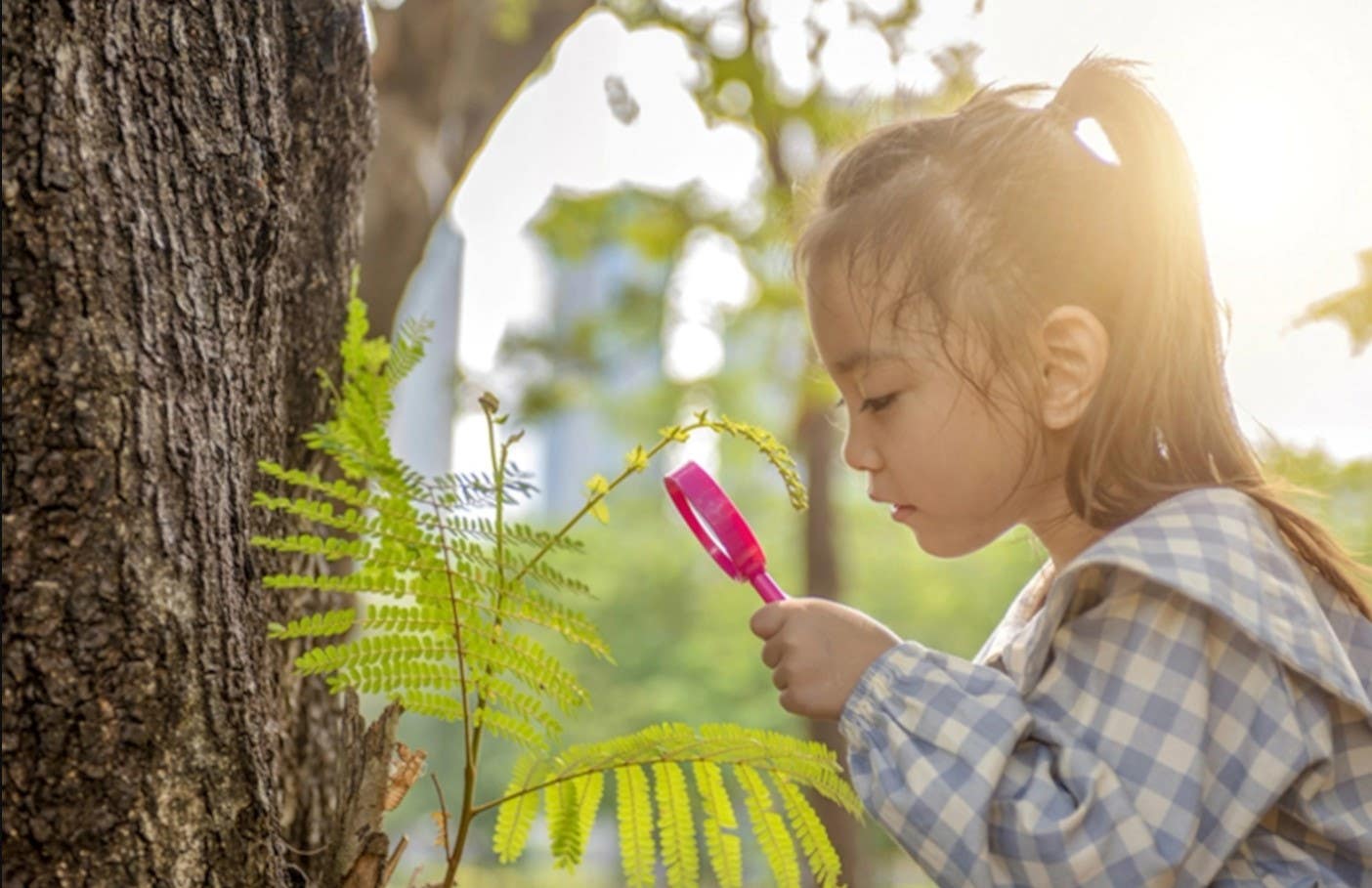Spending time in nature has a surprising effect on early childhood development
Few studies have investigated this pathway linking greenspace and developmental outcomes among children.

[Oct 25, 2021: University of British Columbia]
Want to ensure your child hits their expected developmental milestones? New UBC research suggests living in areas with high exposure to greenspace can help set them up for success.
For the study, researchers at the UBC faculty of forestry and faculty of medicine analyzed the developmental scores of 27,372 children in Metro Vancouver who attended kindergarten between 2005 and 2011. They estimated the amount of greenspace around each child’s residence from birth to age five. They also assessed levels of traffic-related air pollution and community noise.
The results highlight the fundamental importance of natural green spaces like street trees, parks and community gardens, authors say.
“Most of the children were doing well in their development, in terms of language skills, cognitive capacity, socialization and other outcomes,” says study author Ingrid Jarvis (she/her), a PhD candidate in the department of forest and conservation sciences at UBC. “But what’s interesting is that those children living in a residential location with more vegetation and richer natural environments showed better overall development than their peers with less greenspace.”
Map depicting the annual percentage of greenspace in Metro Vancouver for 2011. Darker shades of green depict areas of higher vegetation percentage, while lighter shades of green depict areas of lower vegetation percentage. (Credit: UBC)
According to the researchers, the reason for this is partly greenspaces’ ability to reduce the harmful effects of air pollution and noise—environmental challenges that have been shown to adversely affect children’s health and development through increased stress, sleep disturbances and central nervous system damage.
Related Stories
“Few studies have investigated this pathway linking greenspace and developmental outcomes among children, and we believe this is the first Canadian study to do so,” adds Jarvis.
The researchers assessed early childhood development using the Early Development Instrument (EDI), a survey completed by kindergarten teachers for each child. The tool measures a child’s ability to meet age-appropriate developmental expectations.
“More research is needed, but our findings suggest that urban planning efforts to increase greenspace in residential neighbourhoods and around schools are beneficial for early childhood development, with potential health benefits throughout life,” says the study’s senior author and UBC research associate, Matilda van den Bosch (she/her).
“Time in nature can benefit everyone, but if we want our children to have a good head start, it’s important to provide an enriching environment through nature contact. Access to greenspace from a very young age can help ensure good social, emotional and mental development among children.”
For more science and technology stories check out our New Discoveries section at The Brighter Side of News.
Like these kind of feel good stories? Get the Brighter Side of News' newsletter.
Tags: #New_Discoveries, #Childhood_Development, #Nature, #Environment, #Cognitive_Science, #The_Brighter_Side_of_News
Joshua Shavit
Science & Technology Writer | AI and Robotics Reporter
Joshua Shavit is a Los Angeles-based science and technology writer with a passion for exploring the breakthroughs shaping the future. As a contributor to The Brighter Side of News, he focuses on positive and transformative advancements in AI, technology, physics, engineering, robotics and space science. Joshua is currently working towards a Bachelor of Science in Business Administration at the University of California, Berkeley. He combines his academic background with a talent for storytelling, making complex scientific discoveries engaging and accessible. His work highlights the innovators behind the ideas, bringing readers closer to the people driving progress.



